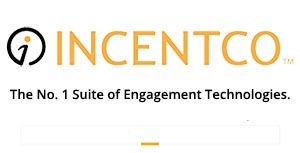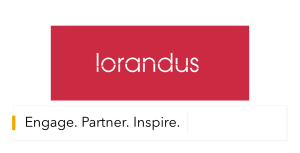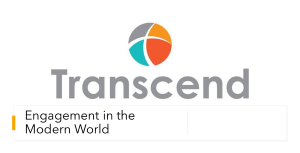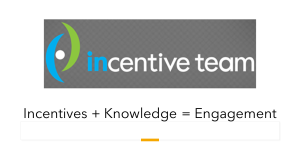Why Social Recognition Isn’t a Popularity Contest
By Darcy Jacobsen, Content Analyst, Globoforce
Every once in awhile I’m approached by a wild-eyed reader in the grips of a terrible fear…a fear that social recognition will turn their company into a mutual admiration society or a high school popularity contest and devolve into some sort of playground “Sharks and Jets” dodge-ball shootout.
Usually it’s no trouble talking these folks off the ledge, because this is never what actually happens in real social recognition. I can tell you this from our years and years of experience in running these types of programs.
But misinformation does have a way of making the rounds, doesn’t it?
Whenever I see people fear-mongering about social recognition, I’m reminded of the flurry of panic in the 1930s, when people wanted to ban entertainment and mass media. They believed something called the “hypodermic needle theory,” which posited that people were zombies who would unthinkingly reenact everything they saw or heard. That theory assumed that “the media’s message is a bullet fired from the ‘media gun’ into the viewer’s head.” If that panic had prevailed, radio, television and the internet probably wouldn’t exist.
Luckily, people are smarter than that, and that panic was disproved and became obsolete – just like this one will. That’s because we all understand that sophisticated, powerful tools must always be used thoughtfully. A recognition platform is no different.
Here are a few reasons why good recognition isn’t a popularity contest:
BUILT-IN OVERSIGHT
A best-practice recognition program is inherently social and invites the participation of all employees. But it’s incorrect to think that participation immediately equates to a free-for-all. That’s like saying that providing employees with scissors at their desks is encouraging them to go around stabbing each other. In fact, every award is subject to an oversight process that involves pre-award approvals and post-award accountability. Awards must have reasons, and the award message is a built-in justification mechanism. There’s no opportunity for abuse to flourish.
CHECKS AND BALANCES
Recognition doesn’t invent culture out of nothing…it merely taps into the culture you already have and gives you tools to visualize that culture, strengthen it and better align it with your values. The truth is, common sense is the number one safeguard for the integrity of the system. I hazard very few of us are sitting on a company full of criminal masterminds waiting to abuse the system. As with anything else, education is paramount to proper use – particularly where cultures are different. Either way, recognition is simply a tool in the hands of your managers, leaders and employees, and it’s no more subject to abuse than any other tool you provide them. In fact, because it’s a powerful way to inculcate values and ethics, it will go further than any other tool to encourage honesty and discourage abuse.
RECOGNITION IS PREDICATED ON TRUST
If you don’t trust your employees, you have a much bigger problem than recognition. As I mentioned above, ways to flag abuse are built into the system, and patterns can be spotted by administrators. In order to reap the full benefits of recognition – for strengthening culture, cultivating cross-functional relationships and driving effective commitment – it’s important to empower employees and give them an active role in appreciation, and to trust them to behave like ethical adults. Offer them a voice and a role in building and maintaining your culture, and your mutual trust will pay off in spades.
SOCIAL MEANS ACCOUNTABLE
Even if your managers are falling down on the job of oversight, there’s an added benefit to social recognition that doesn’t get enough mention. The fact that everyone within your company can see the awards is its own protection against frivolous or quid pro quo recognition. Anyone who has ever participated in social recognition knows that the moment where you have to write WHY you think the award is deserved also forces you to think about IF it is deserved. Because you know the rest of the company will be looking at the award, you’re that much more thoughtful. Even when awards are made private, they’re always visible to managers and senior managers, so there’s always accountability.
IT’S INCLUSIVE, NOT EXCLUSIVE
I sigh when I hear people express concern about the hypothetical unseen and unpopular worker who doesn’t get recognized by peers. A social recognition platform expands the circle of recognition from the 2% of people who traditionally win accolades (like Employee of the Month or President’s Club) and makes recognition accessible for 100% of employees. If that person isn’t being recognized by manager or peers now, you can be darned sure they didn’t have a prayer under the old system. I don’t doubt that there may still be a small number of employees who need help to be reached by social recognition, but if someone deserving isn’t getting awards, then the problem isn’t the recognition platform – it’s the manager. The truth is, a majority of awards in social recognition are still given by managers. The solution here is better education for managers on how to use the solution, not taking the tool away from everyone.
IT’S POSITIVE FEEDBACK
I want to be super clear here. Recognition data is a great addition to reviews. Recognition data is pure, distilled, 100-proof, positive feedback. Positive reinforcement always has a place in performance reviews. In fact, according to Gallup, focusing on positive feedback and strengths is the very best way to engage and develop employees, and knowing that their feedback will not be based on – but will include – the insights and positive feedback of peers is a fantastic way to increase employees’ comfort level with performance reviews. I’m not suggesting crowd-sourced feedback should replace performance reviews or supersede manager feedback, merely that the positive input of peers should be included to increase levels of trust and remove the shortcomings inherent in a manager’s single point of view and inability to be omniscient or ever-present.
Darcy Jacobsen is a content analyst at Globoforce, a leading provider of SaaS-based employee recognition solutions, where she writes for and curates the company blog. Follow her at www.globoforce.com/gfblog and @DarcyJacobsen on Twitter.


















